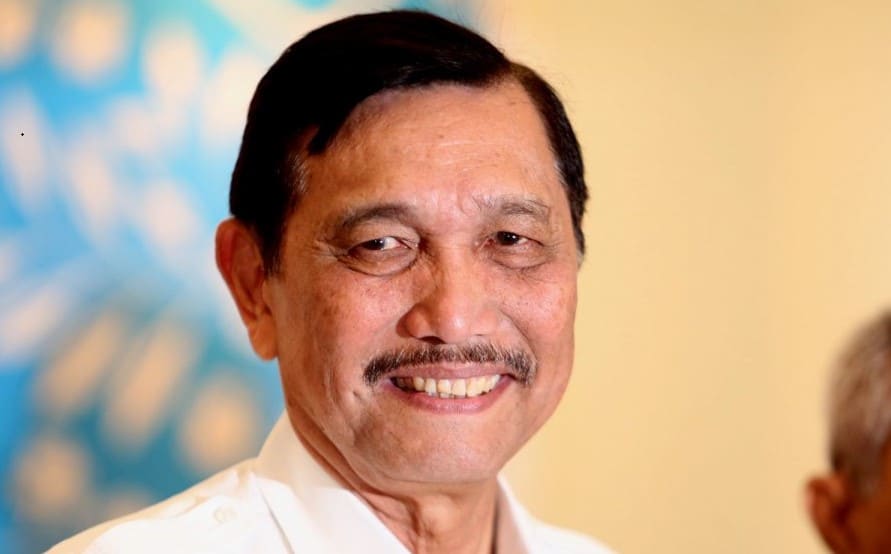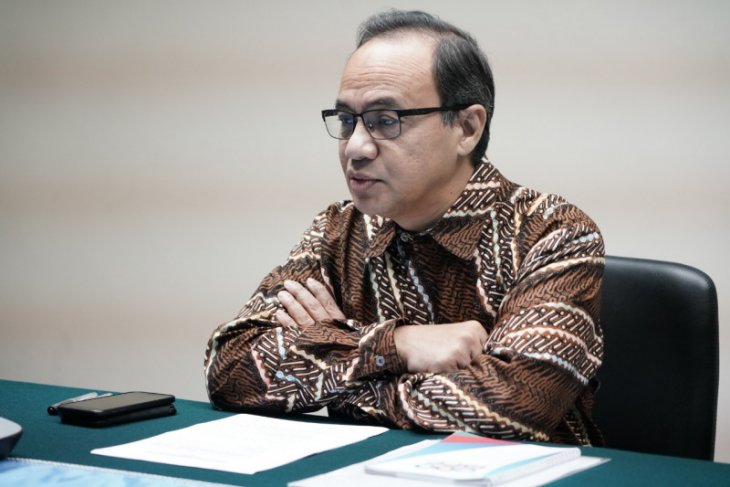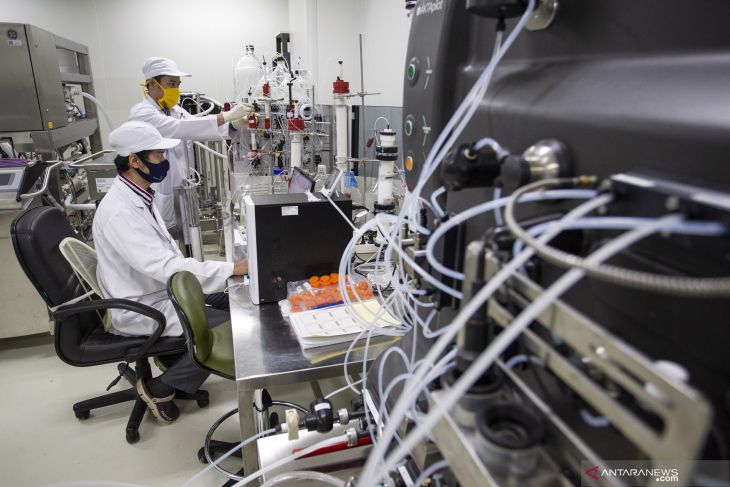Live Streaming
Program Highlight
Company Profile
August
Regulation Facilitating Foreign Tourists to Work from Bali: Minister
Written by Ani Hasanah
Coordinating Minister for Maritime Affairs and Investment Luhut Binsar Pandjaitan affirmed that the government was formulating regulations to enable foreigners to work from Bali while they are on a vacation.
"Those foreigners, with expertise in technology, IT, can work from Bali. We are mulling over that aspect, and we encourage it. We just have to chalk out the rules now," Pandjaitan noted in Jakarta on Thursday.
The government is currently channeling its focus on increasing the number of domestic tourist visits to facilitate the country’s tourism recovery. The government has set a target to increase the contribution of domestic tourists to 70 percent, from the current 50 percent, the minister noted.
"I think that until the end of the year, we will not be allowing foreign tourists. Let us consolidate ourselves. I have notified the president of the vast amount of money owing to no umrah (minor Hajj pilgrimage) now. That is nearly 500 thousand to one million people, who own the funds for Umrah," he explained.
The minister also echoed the government’s intent to cooperate with several international hospitals, so that those heading to Malaysia and Singapore for treatment would no longer need to go abroad.
"We want them to spend that money in the country itself. We are also keen to engage with international hospitals, such as Mayo and Johns Hopkins, or other well-known hospitals, and build them in Bali," he stated.
The presence of international hospitals would also aid in reforming the pharmaceutical industry in Indonesia. To support this, the government is also contemplating on providing easy access to people, who can enter Indonesia, including international doctors.
All these plans will be in keeping with national interests, he stated.
Indonesia Encourages the UN to Respond to World Challenges
Written by Ani HasanahJakarta (VOI News) - Indonesian Foreign Minister Retno LP Marsudi as the main speaker in the webinar with the theme 75 Years of UN Critical Reflection, Thursday in Jakarta said that the Covid-19 pandemic must open the eyes of all countries to promote togetherness and promote collaboration encouraged by the United Nations. At the age of 75, according to Retno, the UN must be able to manage and respond to world demands. One of them is in supporting efforts to mitigate pandemics and the socio-economic impacts of pandemics.
"In the short term, the UN must support the efforts of the international community in overcoming the pandemic and its socio-economic impacts. This includes access to medicines and vaccines for all. In the long term, the UN must be able to help improve global health governance, including efforts to prevent future pandemics,"said Retno Marsudi.
Furthermore, Retno Marsudi also reminded the UN to be able to anticipate various challenges in the world in the future. According to her, the challenges of the future world will not be lighter than today.
"This means that the United Nations must move not only based on current conditions but also be able to anticipate future dynamics. The UN's early warning function should be strengthened especially for non-traditional challenges and emerging issues. These anticipatory steps must be accompanied by innovation so that the UN system and performance do not lag behind the challenges faced," said Retno Marsudi.
Retno Marsudi hopes that the UN can work by prioritizing the development of its member countries. She said the UN risks losing the world's faith in multilateralism if it is unable to respond to global challenges. (VOI/Ndy /AHM)
August
Indonesia Pursues Cooperation with Russia in Health Sector
Written by Ani Hasanah
Photo archives: Acting spokesperson for the Indonesian Foreign Ministry, Teuku Faizasyah, at an online media briefing on Wednesday. (Handout Kemlu RI)
Indonesia is encouraging cooperation with Russia in the health sector, including in COVID-19 vaccine development and research in health technology, an official said.
“What we are encouraging now is a further meeting to discuss the technical aspects of the cooperation between the two countries,” spokesperson for the Indonesian Foreign Ministry, Teuku Faizasyah, said in an online media briefing on Thursday.
He said the health ministries of the two countries discussed cooperation on July 5, 2020. The discussion was a follow-up to a telephone conversation between Indonesian President Joko Widodo and Russian President Vladimir Putin on April 13, 2020.
However, he refused to divulge whether the cooperation would cover the COVID-19 vaccine developed by Russia.
President Putin on Tuesday (August 11, 2020) announced that Russia was the first country in the world to approve a COVID-19 vaccine after two months of human clinical trials.
However, the Russian decision to approve the use of the vaccine has worried experts.
Only 10 percent of the clinical trial for the Russian vaccine candidate has successfully been conducted. Several scientists are worried about Moscow giving priority to state prestige over knowledge and security.
The vaccine dubbed "Sputnik V" has been developed by Gamaleya Institute, and Russia plans to produce 5 million doses of the vaccine per month during the December, 2020 -January, 2021 period.
Several countries, including the Philippines and Kazakhstan, have expressed a keen interest in establishing cooperation with Russia over the vaccine. (ANTARA)
August
COVID-19 Vaccines Included in Indonesia's Research Priorities: Government
Written by Ani Hasanah
Photo Archive. Researchers are working to develop a Red and White vaccine to tackle the COVID-19 pandemic at Bio Farma, Bandung, West Java, Wednesday (12/8/2020). ANTARA FOTO/Dhemas Reviyanto/wsj.
Research and Technology Minister/ National Research and Innovation Agency Head Bambang P. S. Brodjonegoro affirmed that research on vaccines and COVID-19 drugs was included in the national research priorities for the 2020-2024 period.
"For tackling the COVID-19 pandemic, we should immediately put in place a vaccine apart from OMAI, or original Indonesian modern medicine, both phyto-pharmacy and standardized herbal medicines (OHT), including supplements that are currently being tested by LIPI at the Wisma Atlet Hospital," he noted in Jakarta, Thursday, during a virtual press conference to discuss national research priorities.
Brodjonegoro affirmed that the 2020-2024 national research priorities currently also encompass research and development of medical devices that earlier garnered less attention.
The government is making changes in the structure of the 2020-2024 national research priorities, including research on the prevention of COVID-19.
"Of course, medical devices should not be forgotten since they received less attention in the early national research priorities. However, with requirements emerging from the COVID-19 pandemic, we believe that Indonesia must start innovating to develop various types of medical devices required by society, in general," Brodjonegoro noted.
Changes in the 2020-2024 national research priorities also encompass research on the development of short- and medium-range passenger aircraft in addition to the N219 aircraft as well as the development of N245 and R80 aircraft.
In addition, the technology to develop flat plate ships for fishermen is also included in national research priorities.
The 2020-2024 national research priorities include 49 research products, with attention to food, energy, health, transportation, engineering, defense and security, maritime affairs, social humanities, education, cultural arts, and multi-disciplinary, or cross-sectoral.
Four of the 49 national research priorities developed by the Ministry of Research and Technology/BRIN and in the process of entering into national strategic projects comprise red and white catalysts, integrated industrial salt, unmanned aerial vehicle (UAV) or Medium Altitude Long Endurance (PUNA MALE) type named the Black Eagle, and the N219 amphibious aircraft. (ANTARA)



